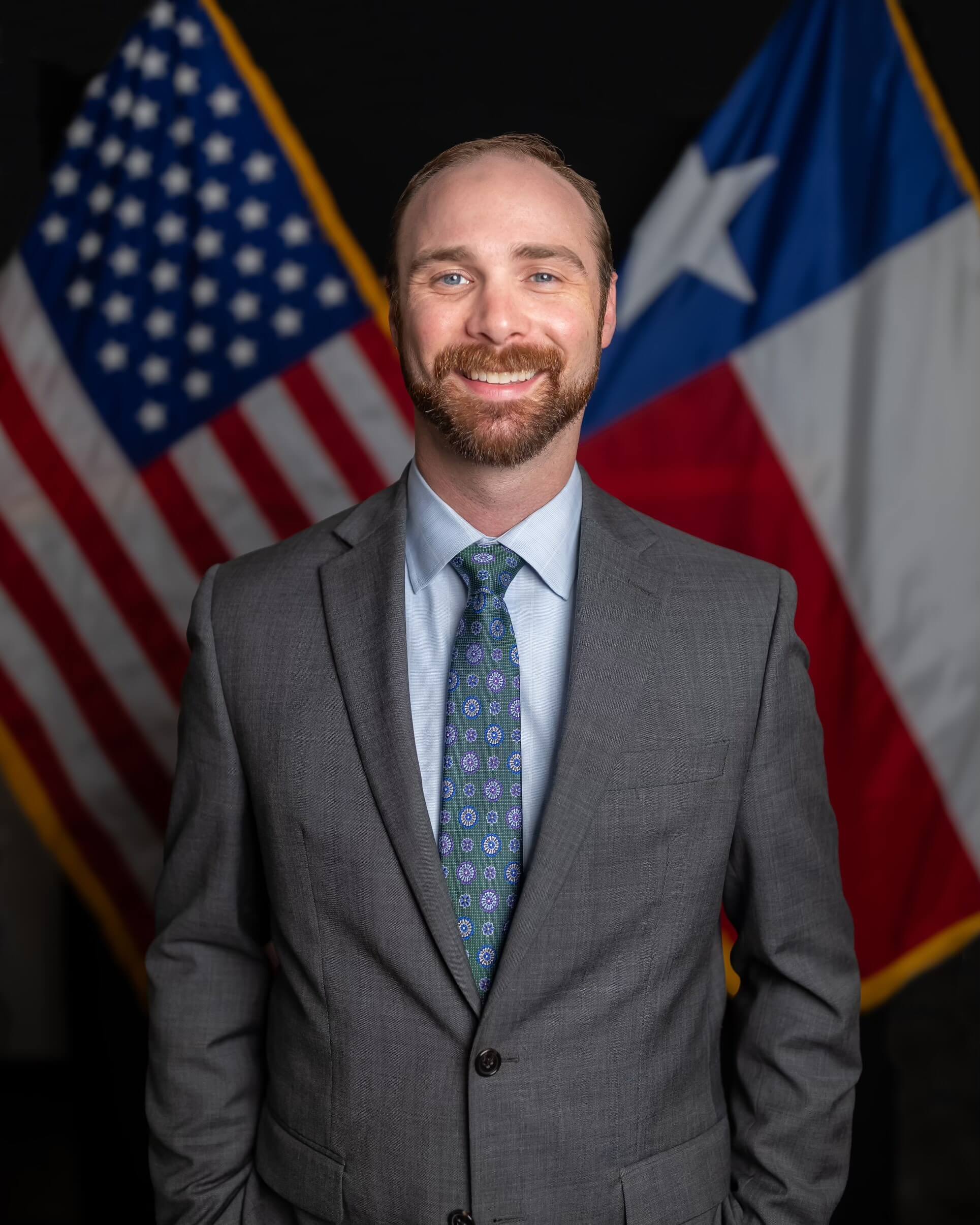Issues and Policy
ADVOCACY
The Texas & Southwestern Cattle Raisers Association (TSCRA) was founded in 1877 to combat cattle rustling. Today, the Association continues its mission of protecting the stewards of land and livestock in the Southwest, not only through law enforcement but also by advocating for sound public policy on issues that impact cattle producers and landowners.
TSCRA is an active participant in all three branches of government—legislative, executive and judicial—in both Texas and Washington D.C.
We advocate on a wide variety of issues directly and indirectly related to our members’ ability to raise cattle and own land. Taxes, land use, natural resources, cattle markets, trade, water, cattle diseases, infrastructure, wildlife, beef substitutes, law enforcement, labor and many more topics are regularly considered by policymakers, most of whom have little to no experience in raising cattle.
In Congress and the Texas Legislature, TSCRA’s government relations staff serves as a liaison between the cattle industry and lawmakers so they understand how laws and regulations impact cattle producers and can make informed decisions.
The Texas Legislature meets every other year from January to May. During the latest legislative session, the TSCRA government relations team read 7,385 pieces of legislation and worked on 798 bills that impacted our members. Thousands of hours were spent in more than 1,000 meetings and conference calls during those six months, not including legislative committee meetings and countless time spent preparing, strategizing, researching and compiling material together for legislative offices.
Like our work at the Texas Legislature, TSCRA is actively engaged with the United States Congress as they craft federal statutes on every issue imaginable. TSCRA leaders and staff regularly travel to Washington for these purposes and are in constant communication with members of Congress and their staff to advocate for and against legislation as necessary.
TSCRA also monitors and works with 33 executive branch regulatory agencies at the state and federal levels. These agencies propose countless regulations every year that can impact your operation and property. We frequently provide written comments and oral testimony to these agencies and continually work with their leaders and staff to ensure the needs and concerns of ranchers and landowners are addressed.
Each year, federal and state courts hear thousands of cases, many of which have implications for cattle raisers. Every time a court issues a ruling, it creates a type of de facto law called judicial precedent. That means each decision will impact much more than the parties in the case—it affects everyone with a stake in the issue. The Association actively participates in the judicial process when cases reach appeal and have consequences beyond the parties involved. This often means filing an amicus curiae brief, or “friend of the court” brief in specific unique and precedent-setting cases. This tool allows organizations like TSCRA to provide the court with additional expertise and insight into the matter, hopefully swaying their opinion.
POLICY DEVELOPMENT
TSCRA has four policy committees responsible for identifying, studying and prioritizing issues and opportunities that affect members and the cattle industry. This includes the development of policy positions that guide the Association’s actions on legislation, regulation, research, education and other activities. TSCRA’s government relations staff serve as liaisons to the committees and assist committee leaders and members with all duties and responsibilities.
TSCRA policy committees meet at least twice a year in conjunction with the TSCRA Summer Meeting and the TSCRA Policy Conference. TSCRA’s president appoints the chair, vice chair and committee members. Any member of the association may serve on one policy committee of their choosing subject to appointment by the president.
If ratified by the Resolutions Committee and full TSCRA Board of Directors, the policies developed by each committee are included in the TSCRA Master Policy List.
Policy Committee Issues
TSCRA PAC
Political Action Committees allow like-minded individuals to pool their resources and direct assistance where it’s needed most. The TSCRA PAC raises funds from TSCRA members and uses them to support candidates who support cattle producers. Sometimes the biggest legislative advocate on an issue important to our members may be a lawmaker from the other end of the state or country. Donating to the PAC allows members an opportunity to support their candidacy even if they cannot vote for them directly.
The TSCRA PAC also provides voting recommendations for state and federal candidates in advance of elections. TSCRA’s government relations staff conducts countless meetings with candidates seeking office and compiles information from each of their campaigns for the TSCRA PAC Board of Trustees to consider. These activities provide an amazing opportunity to establish strong working relationships early in a candidate’s legislative career.
Learn more about TSCRA PAC
Click below to visit the TSCRA PAC homepage, donate, view voting recommendations and more.
GOVERNMENT RELATIONS STAFF
Melissa Hamilton
Executive Director of Government Relations

Melissa Hamilton
Executive Director of Government Relations
TSCRA COMMITTEES
Property Rights and Tax Committee Marketing and Transportation Committee
TSCRA PAC
Board of Trustees
Contributions Subcommittee
ISSUES & RESPONSIBILITIES
Management of Government Relations Team •
Property Rights • Transportation • Truck Weights • Hours of Service • International Trade • Country of Origin Labeling • Cattle Futures and Trading • Livestock Markets • Price Discovery • Packer Issues • Ag Finance and Banking • Fake Meat • Beef Checkoff • Candidate Engagement Activities • Candidate Endorsements and Contributions
AGENCIES
Texas Animal Health Commission • Texas Department of Agriculture • Texas State Board of Veterinary Medical Examiners • Texas A&M Veterinary Medical Diagnostic Laboratory • USDA-Animal and Plant Health Inspection Service • U.S. Food and Drug Administration
Peyton Schumann
Senior Director Government Relations

Peyton Schumann
Senior Director of Government Relations
TSCRA COMMITTEES
Cattle Health and Wellbeing
Natural Resources and Wildlife
TSCRA PAC
Outreach Subcommittee
ISSUES & RESPONSIBILITIES
Cattle Health • Animal Welfare • Cattle Pests and Diseases • Fever Ticks • Disease Traceability • Import and Export Inspections • Import and Export Facilities • Antibiotic Use • Veterinary Issues •Ground and Surface Water • WOTUS • Wildlife • Chronic Wasting Disease • Endangered Species • Predation • Invasive Species • Sustainability • Climate and Conservation • Oil Well Plugging • Prescribed Burning
AGENCIES
Texas Commission on Environmental Quality • Texas Parks and Wildlife • Texas State Soil and Water Conservation Board • Texas Water Development Board • U.S. Fish and Wildlife Service • EPA • USDA-Farm Service Agency • USDA-Natural Resources Conservation Service • USDA-Agricultural Marketing Service • USDA-Food Safety and Inspection Service • TxDOT • Commodity Futures Trading Commission • U.S. Department of Transportation • Federal Highway Administration • Federal Motor Carrier Safety Administration
Paige Holbrooks
Director of Policy & Political Communications

Paige Holbrooks
Director of Policy & Political Communications
TSCRA COMMITTEES
Fever Tick Subcommittee
TSCRA PAC
Fundraising Subcommittee
ISSUES & RESPONSIBILITIES
Communications • News Media • Policy Messaging • Cattle Fever Ticks • Surface Damage • High-Speed Rail • Municipal Annexation • City and County Regulatory Issues • Land Use Regulations • Mineral Interests • Oil and Gas Exploration • Liability and Torts • Farm Animal Liability Act • Federal and State Taxes • Agricultural Valuation • Death Tax • Border Security • Immigration • Fence Law • Trespass • Law Enforcement • Labor • Broadband • Rural Health • PAC Fundraising Activities
AGENCIES
Texas Public Utilities Commission • Texas Railroad Commission • Texas Comptroller of Public Accounts • Texas Department of Agriculture • Texas Department of Public Safety • Texas Commission on Law Enforcement • U.S. Internal Revenue Service • U.S. Department of Labor • USDA-National Agricultural Statistics Service
